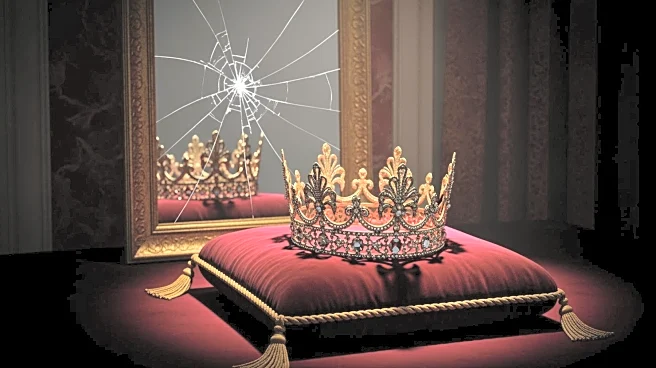What's Happening?
Andrew Mountbatten Windsor, formerly known as Prince Andrew, has been stripped of his royal titles by his older brother, the King. This decision comes amid ongoing scrutiny over Andrew's association with
Jeffrey Epstein. Andrew had previously relinquished his Duke of York title following discussions with the King and Prince William. The loss of his titles places Andrew in a challenging position, particularly in interactions with his daughters, Princess Beatrice and Princess Eugenie, who retain their royal ranks. According to reports, Andrew will now have to bow to other family members, including his daughters, which marks a significant shift in his status within the royal family.
Why It's Important?
The removal of Andrew's titles signifies a notable shift in the royal family's approach to handling controversies and maintaining its public image. By distancing itself from Andrew, the royal family aims to mitigate the impact of his past associations on its reputation. This development may influence public perception of the monarchy, as it demonstrates a willingness to enforce accountability within its ranks. The decision also highlights the evolving dynamics within the royal family, as traditional hierarchies are challenged and adjusted in response to personal conduct and public scrutiny.
What's Next?
Andrew's future interactions with the royal family will likely be closely watched, as he navigates his new status as a commoner. The implications of his title loss may extend to his participation in family events and public appearances. Additionally, the royal family's handling of Andrew's situation could set a precedent for addressing similar issues in the future, potentially influencing how other members are treated in cases of controversy. Observers will be keen to see how Andrew adapts to his changed circumstances and whether further actions will be taken by the royal family.
Beyond the Headlines
The stripping of Andrew's titles raises questions about the balance between tradition and modernity within the royal family. As societal expectations evolve, the monarchy faces pressure to align its practices with contemporary values, including transparency and accountability. This situation may prompt discussions about the role of the monarchy in modern society and how it can maintain relevance while upholding its historical legacy. The ethical considerations surrounding Andrew's case also underscore the challenges of managing personal conduct within a public institution.









